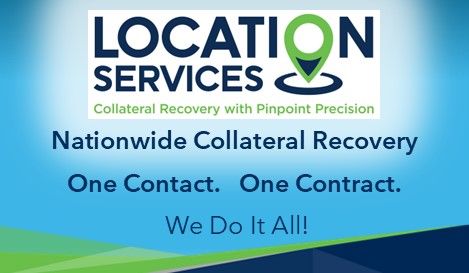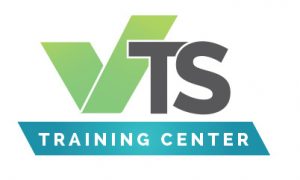On April 13th 2012 the asset recovery industry started to undergo the largest transformation in it’s history, from a predominantly unregulated industry to one that is now federally regulated. This change was introduced with the creation of the CFPB and their impact on the auto finance industry.
Who is the CFPB?
The Consumer Finance Protection Agency (CFPB) was created and authorized by the Dodd-Frank Wall Street Reform Act that passed in 2010 in response to the financial crises of 2008. The announcement on that date put financial institutions and their service providers on notice with its publication titled CFPB to Hold Financial Institutions and their Service Providers Accountable. The publication went on to say that banks and nonbanks must responsibly manage their service provider relationships. That was 4 years ago.
Fast forward to May of 2016 and we see just how much the CFPB has evolved and the impact that is already being felt on the industry. We have all heard or read of the substantial fines that have been handed down for failure to comply with federal regulations. Most in the industry are also familiar with the CFPB’s Consumer Complaint database enabling consumers to file online complaints regarding consumer financial products. In many cases the monetary damage is outweighed by the reputational damage that a financial institution incurs. There are currently in excess of 541,000 complaints that have been filed and forwarded to over 3000 companies for responses.
Today multiple agencies work together in providing guidance and enforcement. Those agencies include the Consumer Finance Protection Agency (CFPB), the Federal Deposit Insurance Corporation (FDIC), the National Credit Union Administration (NCUA), the Office of the Comptroller of Currency (OCC) and the Federal Reserve Board of Governors (FRB). To get a better idea of the impact that the CFPB has had in it’s fairly short existence here are the numbers reported by the CFPB on July 15th, 2015.
$10.1 Billion: Approximate amount of relief to consumers from CFPB enforcement activity, including:
$2.6 Billion in restitution to consumers; and
$7.5 Billion in principal reductions, cancelled debt, and other consumer relief.
17 Million: Consumers who will receive relief because of CFPB enforcement activity.
$286 Million: Money ordered to be paid in civil penalties as a result of CFPB enforcement activity.
$248 Million: Monetary relief provided to consumers as a result of CFPB supervisory actions.
1.8 Million: Consumers who have received relief because of CFPB supervisory actions.
One may question what all of this signifies to the asset recovery industry. The answer is quite simple. If your agency contracts with financial institutions, then your company must also comply with the federal guidelines set forth by the regulators. Title X of the Dodd-Frank Act authorizes the CFPB to (a) obtain and examine reports from supervised banks and non-banks for compliance with federal consumer financial law “and for other related purposes,” and to exercise enforcement authority when violations are identified; and (b) to exercise supervisory and enforcement authority over supervised service providers, including the authority to examine their operations on-site.
We must agree that the practice of repossessing collateral carries a higher risk than just about any other service contracted by a financial institution. The face to face interaction with the consumer during and post repossession increases the need to mitigate risk. These institutions are expected to adopt risk management processes commensurate with the level of risk and complexity of its third-party relationships. Over the past 4 years, financial institutions have started implementing their compliance monitoring systems which is evident from the increase in client site visits and the increased requests for compliance related items. Routine sales calls have gone from one of a repossession service provider selling his/her knowledge of repossessing collateral to now having to demonstrate his/her knowledge of compliance and demonstrating that they have a compliance monitoring system in place for their agency. As was made clear over 3 years ago, during an industry webinar sponsored by VTS and presented by Attorney Michael Dougherty of Weltman, Weinberg & Reis, Mr. Dougherty said, “Folks, you now operate in a federally regulated industry. It may take a few years before we see a direct impact on the auto finance and repossession industry but it will be impacted.” He was spot on with his prediction.
Over the past 4 years, there have been industry participants that have taken to the sidelines hoping to have a front row seat to the disappearance of the CFPB while others jumped at the opportunity to set themselves apart by adapting to the changing times and preparing to operate in the new era of compliance. The CFPB is still here and rumor has it they have no intentions on closing shop any time soon. It is quite evident today that if an asset recovery agency is going to excel and experience growth in this new era of compliance, they will need to incorporate compliance into their company’s day-to-day operations.
Before we proceed, lets get some things clear. For starters, compliance is not made easy and actually takes some work. I promise you will not find it in a can and cannot purchase it off of a store shelf. Compliance with federal law is something that needs to be adopted by the company and implemented into your company policies and procedures. Compliance is something that needs to be monitored daily. You will need to train your staff to understand these laws and be able to demonstrate that you have a continuing education program in place.
Most importantly, your clients are expecting that your company is conducting proper due diligence on each and every employee in your organization. Your organization needs to create a culture of compliance that will eventually become your company’s pulse. This, my friends, takes some time and does not happen overnight. In most cases, the easier a compliance solution seems, the more watered down it is, making it ineffective and it simply wont be sufficient to meet the requirements demanded of you by your client.
It’s no longer enough for banks and other financial institutions to simply have good working relationships with the third parties that provide repossession services. Compliance has taken center stage and those that do not adapt to this new era will be ultimately left behind.
Let’s discuss what financial institutions are focusing on when searching to contract with new service providers, and what you will need to satisfy their compliance needs.
For starters, financial institutions are required to perform proper due diligence on all contracted service providers. The level of due diligence is required to be extensive and comprehensive. There was a time where the main requirements for contracting included proper insurance and a dishonesty bond. Today, these items are still required but represent only a fraction of items being requested during the due diligence process.
A sound compliance monitoring system also includes the following components:
- On-going Monitoring Capabilities allowing the service providers and the financial institution to monitor and identify procedural or training weaknesses and determine whether they are complying with federal consumer financial law. The monitoring capability allows for service providers to have a better handle on areas where they can improve.
- Policies and Procedures need to be structured and aligned to be in sync with your client’s policies and procedures. They must include all of the elements of compliance to assure that you are adhering to federal law.
- Consumer Complaint Handling is an organized way of responding to, recording, reporting and using complaints to improve service to consumers. It includes procedures for customers to make complaints and guidelines for staff to resolve them. In addition, they provide information to managers and staff that can be used to prevent customer dissatisfaction in the future.
- Continuing Education Training to ensure that the service provider conducts appropriate training of employees or agents that have consumer contact or compliance responsibilities.
Most importantly, learn the language of compliance. Get familiar with your client’s expectation and familiarize yourself with the federal law that now has authority over your industry.
In ending I will say that for the past 20 years the majority of this asset recovery industry has been vocal in demonstrating their disagreement with operators that were less than professional, cutting corners and elevating the risk that has driven many insurers out of the industry and ultimately escalating rates to an all-time high.
The image of the industry has suffered severely due to the actions of those that so many said did not have a place in the asset recovery industry. For years there was seldom a week that did not go by without the news of the unlawful actions of a service provider or the injury or death to a consumer or a recovery agent due to lack of training. Today the industry has been given a gift called compliance, the greatest tool to turn an entire industry around and level the playing field. An opportunity to elevate your company through compliance and transparency. A chance for the true professionals to once again be proud of what they do and how they do it.
 Vendor Transparency Solutions, LLC (VTS) was introduced to the industry in 2012. Our products focus on the main components of compliance as listed above. We are proud to have assisted hundreds of companies with their compliance needs and have assisted many in taking their business to the next level.
Vendor Transparency Solutions, LLC (VTS) was introduced to the industry in 2012. Our products focus on the main components of compliance as listed above. We are proud to have assisted hundreds of companies with their compliance needs and have assisted many in taking their business to the next level.
We work with companies and provide them the necessary tools and guidance on the expectations of financial institutions. We have also been working diligently with VTS subscribed financial institutions that utilize the VTS Compliance Monitoring System to monitor their network.
Since our original launch in 2012, VTS has developed the VTS Complaint Handling Module, the VTS Marketing Module and the VTS Library which are all inclusive at no additional fee. We have also recently released the VTS Training Center that enables a service provider the ability to issue and track 12 continuing education compliance-specific courses to their employees.
Our mission is to assist our subscribers in minimizing their exposure to risk and consumer complaints through the development of superior compliance monitoring products, continuing education and providing the highest level of risk management.
Visit our website: www.vtscheck.com or contact us for more information at 520-468-3990 ext. 102












Facebook Comments